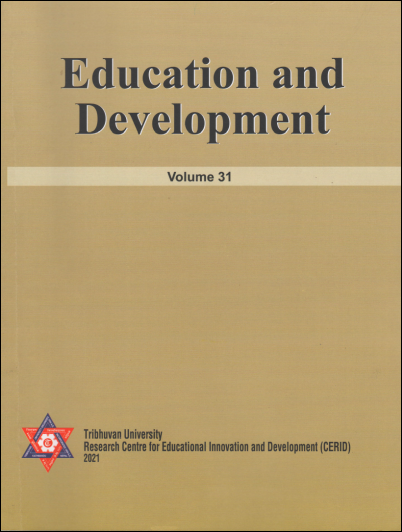Covid-19 Situated Vocabulary Development in EFL/ESL Learners: Context and Strategies
DOI:
https://doi.org/10.3126/ed.v31i01.62204Keywords:
Covid-19, EFL learning, vocabulary development, word-in-zero-context, word-in-sentence-context, social mediaAbstract
This paper presents Covid-19 related vocabulary development in higher secondary level students in Nepal. The study applied a mixed research design and was conducted in different phases. Quantitative information derived through the Vocabulary Test Survey (VTS), and qualitative information collected through free writing tasks were analyzed using descriptive statistics and thematic analysis respectively. The VTS of the 30 most frequent Covid-19 vocabulary items was arried out in two different contexts: word-in-zero-context (WiZC) and word-in-sentence-context (WiSC). The students’ responses regarding the (media) sources they acquired/learned from, and the strategies they used to acquire/learn particular vocabulary items were collected as the data, which were analyzed thematically. Finally, the students were involved in free writing tasks which were analyzed to find out the stages of vocabulary development. The findings show that the students’ achievement in WiSC was comparatively better than that in WiZC. Yet, the difference was not significant in most of the Covid-19 vocabulary items. Similarly, social media were found key sources of Covid-19 vocabulary development in the learners. Finally, in the case of most of the Covid-19 vocabulary items, the students performed around concept formation, concept extension and limited/controlled use stages of vocabulary development.
Downloads
Downloads
Published
How to Cite
Issue
Section
License
Copyright (c) 2021 The Author(s)

This work is licensed under a Creative Commons Attribution-NonCommercial 4.0 International License.
CC BY-NC 4.0. This license requires that reusers give credit to the creator. It allows reusers to distribute, remix, adapt, and build upon the material in any medium or format, for noncommercial purposes only.




